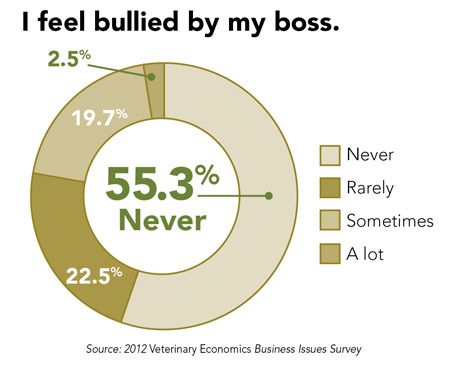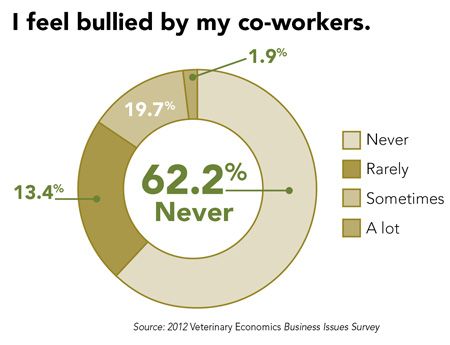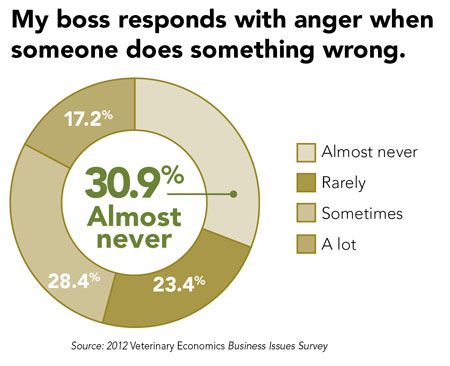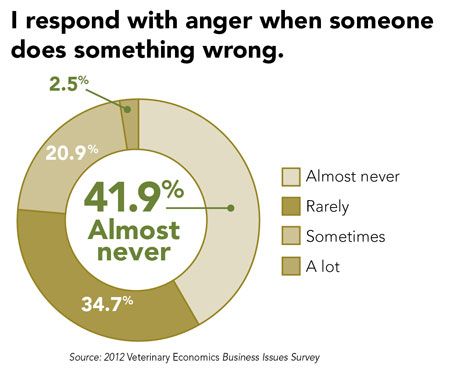Workplace warzone: How to deal with bullying in veterinary practice
One in five veterinary team members admit to feeling bullied by their boss sometimes. For a profession that relies on close communication of medical teams, that's a shame. Our expert has the inside scoop on how to spot the warning signs and wipe out toxic turbulence in the workplace for good.
Next >
Imagine waking up each morning and dreading going to work because of the hostile behavior you encounter on a daily basis from a boss or co-worker. Sadly, this is the reality for some veterinary team members who deal with a bully in the office. And judging from the results of the 2012 Veterinary Economics Business Issues Survey, it’s more common than you might think.

Dr. Shawn Finch, a Veterinary Economics Editorial Advisory Board member and associate veterinarian at Gentle Doctor Animal Hospitals in Omaha, Neb., knows firsthand how difficult working in a hostile environment can be.
“I’ve been in two situations that involved bullying—one with a practice owner and one with a head technician,” Dr. Finch says. “I tried bully avoidance, which was not the right thing to do. I also turned most of the stress in on myself, which was not the right thing to do either. When it was clear that the situations weren’t going to change, I gave notice and quit.”

So what should a practice owner or manager do to prevent bullying in the office and keep situations like Dr. Finch’s from happening? Here are her tips to keep peace in the workplace.
Lay ground rules. Establish very clear anti-bullying standards and make them well known among team members—in the practice handbook, in team meetings, and even in job interviews.
Reward good behavior. Publicly recognize and reward kindness, supportive and helpful actions, and other good deeds that are the opposite of bullying bad behavior.
Check the pulse of your practice. Stay in the loop and regularly communicate with your team members. Be aware of how everyone is doing, particularly in relationships with one another.
Practice zero tolerance. Nip bad behavior in the bud. Having a straightforward conversation with a team member who’s showing early signs of bullying behavior will save everyone heartache and trouble in the long run. Letting a bullying situation develop, continue or work itself out will never end well.

Fortunately, Dr. Finch is now in a healthy practice environment—and it’s made all the difference. “Working in a positive environment again has been such a relief,” Dr. Finch says. “Everyone on the team can just gather every day and practice great medicine together.”
Dr. Finch says the number one contributor to the anti-bullying work environment she’s currently in is positive leadership. “Team members are thanked individually and publicly for being kind and supportive to one another,” she says. “From the practice owner to the other doctors and leaders, there is an expectation and modeling of kindness and fairness.”
